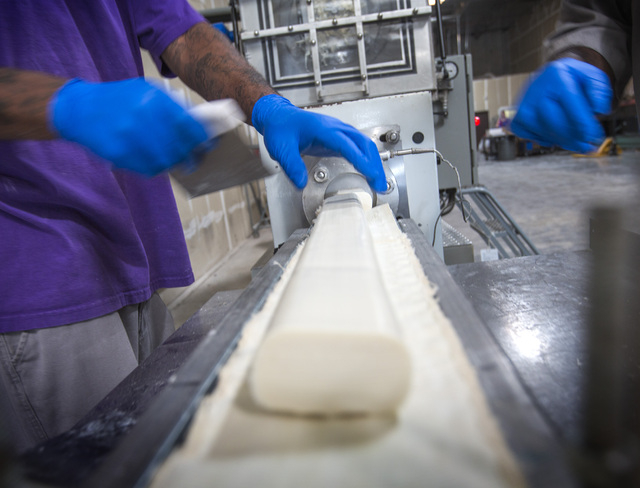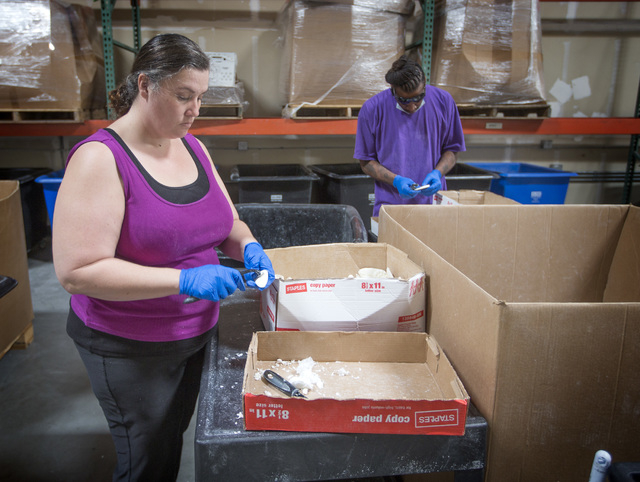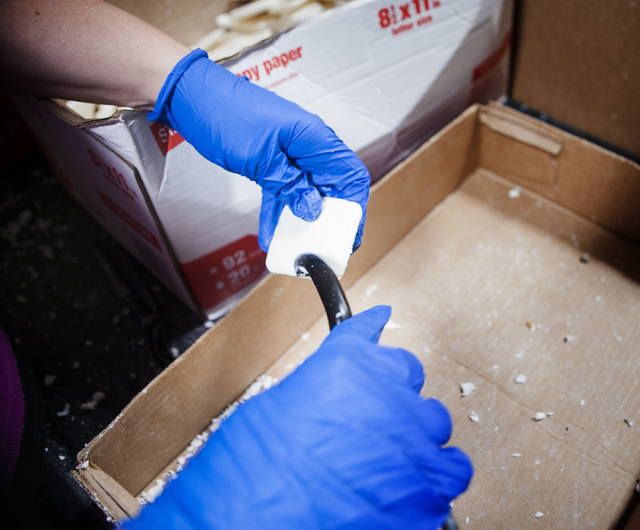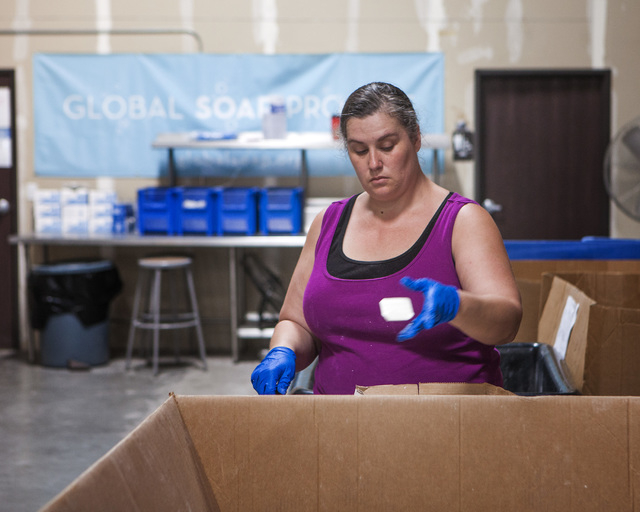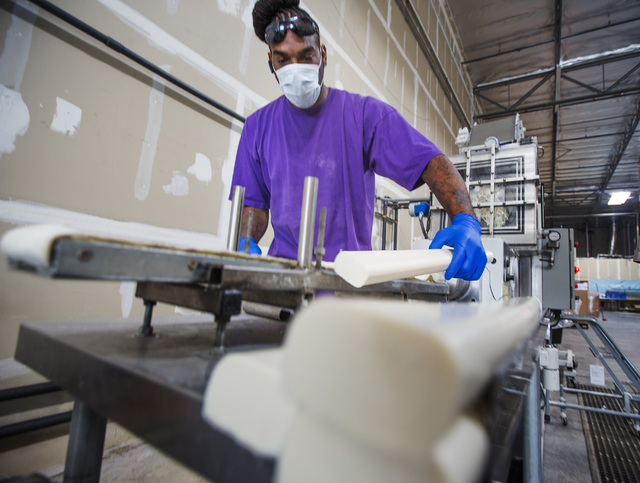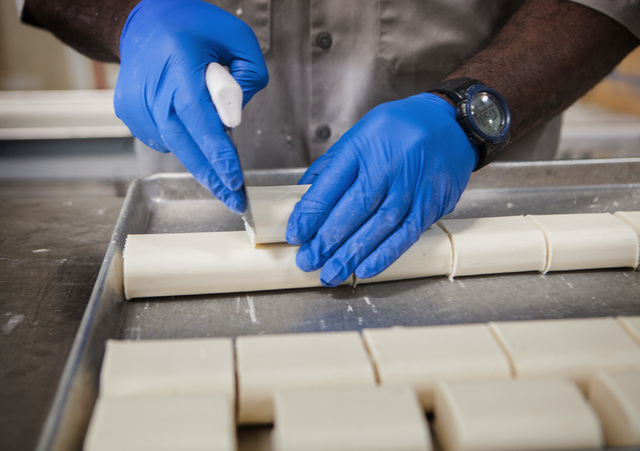Waste soap is saving lives around the world
A 5-year-old non-profit organization is cleaning up in North Las Vegas.
The Global Soap Project will quadruple its output of reprocessed soap bars with the opening of its new 7,000-square-foot manufacturing plant, which is twice as large as the one it’s replacing.
By moving the plant from Atlanta, where the company has operated since 2009, CEO Sam Stephens said the company would capitalize on volume by being in a city with more than 150,000 hotel rooms.
“It really just boils down to the fact that if we’re in the business of recycling discarded hotel soap, why not be in the city with the greatest concentration of hotel rooms?” Stephens said. “It’s just a no-brainer.”
The Global Soap Project doesn’t register contributing resorts for membership, nor charge for taking used soap bars off the hands of local hotel companies. Companies get a tax deduction for the shipping costs they incur getting their soap bars to the plant.
Las Vegas companies never contributed soap to the company when the plant was in Atlanta because of the expense of shipping so many bars. Now, bars come in from every state.
Now that the plant is in Southern Nevada, Stephens said the company can arrange to pick up soap regularly, making it even easier for resort companies to contribute.
Soap recycling is fairly simple. First, arriving soap is sorted in large bins by color and texture. Then debris is cleared from the soap and the bars are ground to a feta cheese consistency. When enough soap of a particular texture or color has been collected, the ground soap is fed into machines and pressed through screens changed every 45 minutes.
Soap is heated and molded into bars that emerge on a conveyor belt.
Plant manager Aaron Weatherly said he has become adept at eyeballing how much of the newly molded soap makes a 4-ounce bar. He uses a weighed bar as a template and chops the lengthy bars apart.
“There may be one in there that’s 4.1 ounces or 3.9 ounces, but it’s all pretty close,” Weatherly said. Eventually, the plant expects to install an automatic cutter that will remove the guesswork.
The newly made bars aren’t wrapped, but are stacked into boxes for shipment. Bars are sent to 32 countries on four continents and distributed to refugees, disaster victims and people living in extreme poverty.
Water and hygiene-related illnesses in the developing world — including diseases such as cholera, dysentery and respiratory infections — are responsible for more deaths in children under the age of 5 than HIV, AIDS, tuberculosis and malaria combined.
There are 4,468 preventable hygiene deaths each day among children younger than 5. Research shows that hand-washing with soap is more effective in preventing diseases and death than vaccines, medications or clean-water initiatives.
Stephens said a highlight of his career was seeing children getting their soap in Malawi when working with the Centers for Disease Control and Prevention.
“It really is why all of us get up every day,” Stephens said. “It’s great to reduce the waste and we certainly couldn’t be doing what we’re doing without that component, but knowing that the work that we’re doing is leading to those types of outcomes really is what motivates all of us to put forth our best effort day in and day out.”
The plant has just five full-time employees. Because the company is a nonprofit, the plant seeks volunteers to help with the process. Stephens already has made contact with organizations at the University of Nevada, Las Vegas, and welcomes additional volunteer help and donations from community organizations valleywide. Volunteers can contact the company through its globalsoap.org website.
As the company accepts more soap, Stephens said he would consider adding shifts. If the project continues to take off, the company may build another processing plant in another tourism center like Orlando, Fla.
“It’s something so simple,” Stephens said. “I wish I had come up with the idea myself. As soon as I heard about it, I loved it and I knew I wanted to be a part of it. It really is powerful, powerful stuff.”
Contact reporter Richard N. Velotta at rvelotta@reviewjournal.com or 702-477-3893. Follow @RickVelotta on Twitter.




